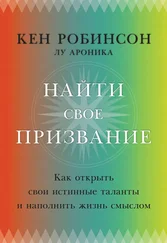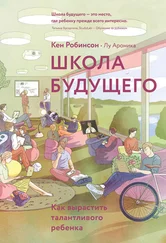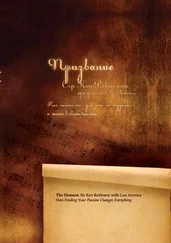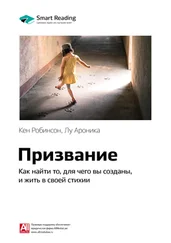Кен Робинсон - The Element
Здесь есть возможность читать онлайн «Кен Робинсон - The Element» весь текст электронной книги совершенно бесплатно (целиком полную версию без сокращений). В некоторых случаях можно слушать аудио, скачать через торрент в формате fb2 и присутствует краткое содержание. Год выпуска: 2009, ISBN: 2009, Издательство: Penguin Books Ltd, Жанр: Самосовершенствование, на английском языке. Описание произведения, (предисловие) а так же отзывы посетителей доступны на портале библиотеки ЛибКат.
- Название:The Element
- Автор:
- Издательство:Penguin Books Ltd
- Жанр:
- Год:2009
- ISBN:9780141911250
- Рейтинг книги:3 / 5. Голосов: 1
-
Избранное:Добавить в избранное
- Отзывы:
-
Ваша оценка:
- 60
- 1
- 2
- 3
- 4
- 5
The Element: краткое содержание, описание и аннотация
Предлагаем к чтению аннотацию, описание, краткое содержание или предисловие (зависит от того, что написал сам автор книги «The Element»). Если вы не нашли необходимую информацию о книге — напишите в комментариях, мы постараемся отыскать её.
The Element — читать онлайн бесплатно полную книгу (весь текст) целиком
Ниже представлен текст книги, разбитый по страницам. Система сохранения места последней прочитанной страницы, позволяет с удобством читать онлайн бесплатно книгу «The Element», без необходимости каждый раз заново искать на чём Вы остановились. Поставьте закладку, и сможете в любой момент перейти на страницу, на которой закончили чтение.
Интервал:
Закладка:
One day when I was ten, a visitor appeared in the classroom. He was a well‐dressed man with a kind face and an educated voice. He spent some time talking to the teacher, who seemed to me to take him very seriously. Then he wandered around the desks talking to the kids. I suppose there were about a dozen of us in the room. I remember speaking with him for a little while, and that he left soon afterward.
A day or so later, I received a message to go to the headmaster’s office. I knocked on the large paneled door, and a voice called me in. Sitting next to the head teacher was the man who’d come into my classroom. He was introduced to me as Mr. Strafford. I learned later that he was Charles Strafford, a member of a distinguished group of public officials in the United Kingdom, Her Majesty’s Inspectors of Schools. The government had appointed these senior educators to report independently on the quality of schools around the country. Mr. Strafford had particular responsibility for special schools in the northwest of England, including Liverpool.
We had a short conversation during which Mr. Strafford asked me some general questions about how I was getting on at the school and about my interests and family. A few days later, I received another message to go to the headmaster’s study. This time I wound up in another room and met a different man who asked me a series of questions in what I later understood was a general IQ test. I remember this vividly because I made a mistake during the test that really irritated me. The man read a series of statements and asked me to comment on them. One of them was this: “Scientists in America have discovered a skull which they believe belonged to Christopher Columbus when he was fourteen.” He asked me what I thought of that, and I said that it could not have been Christopher Columbus’s skull because he didn’t go to America when he was fourteen.
The moment I left the room, I realized what a stupid answer that was and turned to knock on the door to tell the man that I knew the real flaw in the statement. I heard him speaking to someone else, though, and decided not to interrupt. The next day I saw him crossing the playground and was about to accost him with the answer. But I worried that he would assume that I’d spoken with my dad overnight and that he’d told me the real answer. I decided it was a waste of time to correct things. Fifty years later, I’m still annoyed about this. I know; I should get over it.
My error turned out to be insignificant to whatever the testers were looking for in me. Shortly afterward, the school moved me to a different class of children who were several years older than me. Apparently, Mr. Strafford had spoken with the head teacher about me and said that he saw a particular spark of intelligence that the school wasn’t developing as fully as they could. He thought the school could challenge me more and that I had the potential to pass a test known at the time as the eleven‐plus examination.
In Britain back then, high school education took place in two different types of school: secondary modern schools and grammar schools. The grammar schools offered a more prestigious, academic education, and they were the primary routes to professional careers and universities. Secondary modern schools offered a more practical education for kids to take up manual and blue‐collar jobs. The whole system was a deliberate piece of social engineering designed to provide the workforce needed for the industrial economy in the UK. The eleven‐plus was a series of IQ tests developed to identify the academic aptitudes needed for a grammar school education. Passing the eleven‐plus was, for working‐class kids, the best path to a professional career and an escape from a possible lifetime of manual work.
The teacher in my new class was the redoubtable Miss York. She was a small woman in her forties, kind but with a reputation for being intellectually rigorous and demanding. Some of the teachers at the school had relatively low expectations of what we kids were likely to achieve in our lives. I think they saw the purpose of “special education” mainly as pastoral. Miss York did not. She expected of her “special” pupils what she would expect of any others: that they work hard, learn, and do their absolute best. Miss York coached me relentlessly in math, English, history, and a variety of other subjects. Periodically she would give me past eleven‐plus exams to practice on, encouraging me to excel at these. She remains one of the most impressive teachers I have ever met.
Eventually, with a group of other children from my school and other special schools in the area, I sat down to take the actual eleven‐plus exam. For weeks afterward, Miss York, Mr. Strafford, my parents, and I waited anxiously for the brown envelope from the Liverpool Education Committee to arrive with the potentially life‐changing result of the test. One morning in the early summer of 1961, we heard the letterbox clatter, and my mother ran to the front door. Tense with excitement, she carried the letter into the small kitchen where we were having breakfast and handed it to me to open. With a deep breath, I took out the small folded piece of paper inside the envelope with its typed message. I had passed.
We could hardly believe it. The house erupted in wild excitement. I was the first member of my family to pass this test, and the only pupil at the school who passed it that year. From that moment on, my life moved in a completely new direction. I received a scholarship to the Liverpool Collegiate School, one of the best in the city. In one leap, I moved from the special school into the upper ends of mainstream state education. There, I began to develop the interests and capacities that have shaped the rest of my life.
Charles Strafford became a close friend of my family and a frequent visitor to our packed, usually frenetic family home in Liverpool. He was a sophisticated, urbane man with a passion for helping people find the chances they deserved. A professional educator with a love of literature and classical music, he played the timpani, sang in choirs, and conducted music ensembles in Mersey‐side. He had a refined taste for good wines and brandies and lived in a finely furnished town house in northern England. He’d served as a major during World War II and had been part of the Normandy campaign. He kept a second home in Ranville in the Calvados region of northern France, where he had become a key figure in the local French community. Ranville now boasts a road named after him, the allée Charles Strafford. I visited him there in my university days, and he introduced me to local society and to the pleasures of French cuisine and calvados apple brandy, for which I am equally grateful.
For me, Charles Strafford was a window into another world. Through hands‐on, practical assistance, he facilitated my early journey from the back row of special education to what has become a lifelong passion for full‐scale educational reform. He was an inspirational role model for seeing the potential in other people and for creating opportunities for them to show what they can really do. Aside from my parents, he was my first true mentor and taught me the invaluable role mentors play in helping us reach our Element.
The Life‐Changing Connection
Finding our Element often requires the aid and guidance of others. Sometimes this comes from someone who sees something in us that we don’t see in ourselves, as was the case with Gillian Lynne. Sometimes it comes in the form of a person bringing out the best in us, as Peggy Fury did with Meg Ryan. For me, Charles Strafford saw that I would only reach my potential if my educators offered me greater challenges. He took the necessary steps to assure that it happened.
I didn’t know it at the time, but the person who was to mentor me for most of my adult life this far was also at school in Liverpool at the time, just a few miles away from me. I met Terry years later, when I was living and working in London in my late twenties. I was back in Liverpool for a week to run a course for teachers. She was teaching drama in a difficult, low‐income area of the city. We had an instant connection—which had absolutely nothing to do with teaching, education, or the Element—and we’ve been together ever since. She’s one of the finest mentors I know, not just to me but to friends, family, and everyone who works with her and for her. She knows intuitively the power and importance of mentors because they have been so important in her own life. While I was being mentored by Charles, she had a childhood mentor of her own. This is how she tells it:
Читать дальшеИнтервал:
Закладка:
Похожие книги на «The Element»
Представляем Вашему вниманию похожие книги на «The Element» списком для выбора. Мы отобрали схожую по названию и смыслу литературу в надежде предоставить читателям больше вариантов отыскать новые, интересные, ещё непрочитанные произведения.
Обсуждение, отзывы о книге «The Element» и просто собственные мнения читателей. Оставьте ваши комментарии, напишите, что Вы думаете о произведении, его смысле или главных героях. Укажите что конкретно понравилось, а что нет, и почему Вы так считаете.












